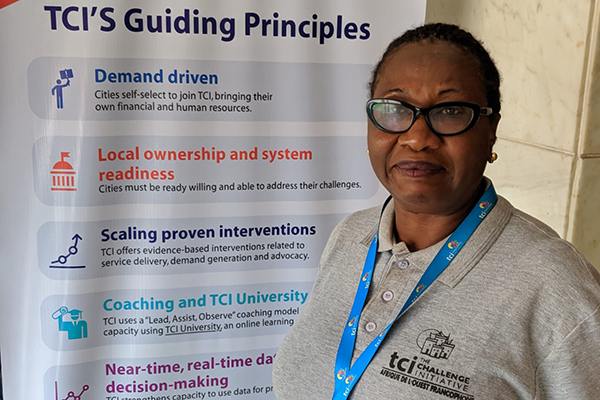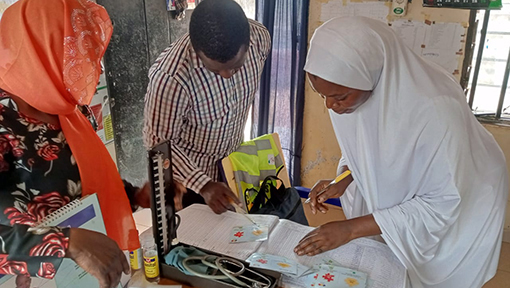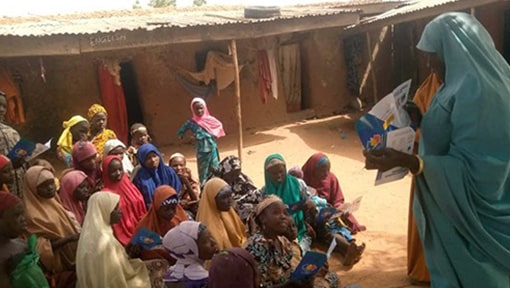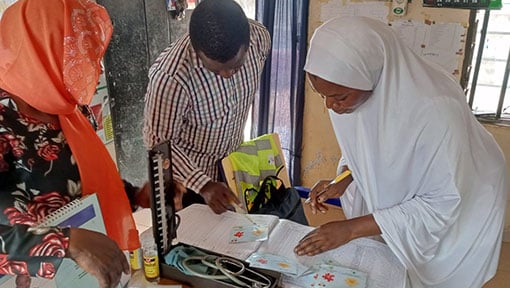Bouaké’s Regional Health Director: TCI Makes Family Planning Part of the ‘Daily Routine’
Dr. Fatoumata Touré Bamba is the regional health director in Bouaké, Cote d’Ivoire. She sat down with TCI recently to talk about changes in her city due to TCI’s presence.

Dr. Fatoumata Touré Bamba is the regional health director in Bouake, Cote d’Ivoire.
What was happening in Bouaké before TCI arrived?
Before TCI, family planning services were provided, but differently – they were only available at the family planning unit. Family planning was not promoted across all points of service. In the past, it was not part of people’s habit. We could see and treat a woman without talking about family planning.”
What changes are you seeing as a result of TCI?
The TCI approach has enabled us to adopt a new approach in terms of family planning through the systematic identification of client needs (ISBC). Today, in the city of Bouaké and the surrounding urban areas, all providers have been oriented on how to talk about family planning after providing any service. This approach has led to improvement in our indicators in Bouaké.
It’s now part of our daily routine, it’s done every day… You come and say: “Dr. Bamba, I have a headache.” I address your headache. As soon as I am done, I ask you three questions based on the job aid, which is right in front of me: ‘Madam, how are you? Do you know about family planning?’ In case you say ‘yes,’ [I will ask], ‘are you currently using a method?’ If you say ‘yes,’ I encourage you to keep using it and send you on your way. However, with ISBC, if you reply ‘no,’ I ask ‘Do you want to be on any method? Yes?’ I will explain it and tell you all about family planning. [If] I am a nurse and I can’t provide the method, I will refer you to the FP unit where a midwife or a physician will provide the method… The innovation is that it’s now part… of the daily routine. We are gradually integrating [family planning] into the daily routine at all entry points. When I say entry points… I mean all other points of service beyond family planning. That is vaccination, pre- and post-natal care, the delivery room, medical examination, and even surgery consultation, wherever one may interact with a woman and her husband, even at the pharmacy.”
What is happening in Bouaké now?
Today, with ISBC, women are informed about family planning the first time they interact with a service provider. He/she identifies her need and refers her to the appropriate unit or provides the service. With TCI [it] has become a habit at the level of all points of service… [It] has become daily routine to generate demand … for us to get more clients. If we can keep this as part of the routine, it will be sustainable and that very sustainability will help us improve family planning indicators. It will help us improve the state of women because if contraception is adopted, women will be economically free; they may focus on their work. The TCI approach [with the geography and local governments] has helped us a lot. If we can maintain this approach, I think the most significant change is sustainability. If we can maintain both the mayor’s commitment and the daily routine of ISBC, I think we can do it.”
For more on TCI in Bouaké, see Bouaké, Cote d’Ivoire, Improves Data Collection and Uses Data to Provide Services for Youth. And watch Dr. Bamba in The Story of Bouaké video below:






